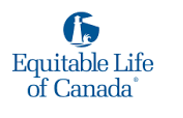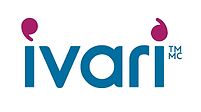
Whole Life Insurance
Whole life insurance provides life insurance protection for your entire life, it does not expire. It can be used as an income tool as well as an insurance instrument. It includes a death benefit and a cash value component. As the value grows, you can access the money by taking a loan or withdrawing funds and you can end the policy by taking the cash value of the policy.
Five tips to know when buying Whole Life Insurance.
- Whole life policies are generally much more expensive in nature, and you want to make sure that you want coverage for life and that you’re able to afford the premium. If you cancel the policy in the early years, you’ll be losing the bulk of your contribution.
- Determine if you want a participating or non participating policy. Participating whole life policies are generally higher in cost but provide an annual dividend which can translate into an increasing cash value and death benefit. This allows your policy to stay in line with inflation.
- Determine if the policy has a quick-pay option. Many whole life policies allow you the option of paying up the policy in 10, 15 or 20 years. You generally pay a higher premium for this option, since your premium period is condensed to a shorter time frame.
- Determine what riders or benefits are available as add-ons to the policy. Many whole life policies allow you to add a disability waiver, accidental benefit or a variety of other riders and/or benefits which can enhance the policy’s overall value. But be careful of the cost of these riders.
- Work with an independent broker who can provide you with unbiased independent advice and select the best whole life plan for your situation.
When do you need whole life insurance?
There are numerous cases in which whole life insurance is your best option:
- You want to have life long coverage that does not expire.
- You want to have predictable insurance rates – whole life insurance rates will always stay the same.
- You want someone to invest and monitor your savings for you.
- You are not expecting extraordinary investment profits – whole life insurance’s cash value accumulation will be always lower than high-risk/high-growth investments.
How does Whole Life Insurance compare to other life insurance products?
| Term Life Insurance | Whole Life Insurance | Universal Life Insurance | |
|---|---|---|---|
| Coverage Length | Limited | Life Long | Life Long |
| Cash Value Accumulation | No | Yes | Yes |
| Investment component | No | No | Yes |
| Cost | Lowest | Highest | Medium |
To know more differences between term life and whole life insurance, see Frequently asked questions.
Not sure what you need? Learn in seconds which types of insurance match your business.
Term Life Insurance

Provides a death benefit that pays the beneficiaries throughout a specified period
read moreSimplified Life Insurance

Simplified Life Insurance is a type of No Medical Life Insurance that comes without medical exams.
read moreWhole Life Insurance

Whole life insurance is a life insurance policy that covers a policyholder
read moreCritical Illness Insurance

Critical illness insurance is a type of policy that pays you a lump sum should you be diagnosed with illnesses.
read moreUniversal Life Insurance

While providing lifetime protection like whole life insurance, it offers key financial
read moreDisability Insurance

Disability insurance is designed to replace your income if you become disabled and are unable to earn an income.
read moreOur mission
At GSA Financial Services.com, we are committed to helping you with your needs of life insurance, disability insurance, as well as critical illness insurance, online via our website, phone call and email.



Assuris
If you are a Canadian citizen or resident and you purchased a policy from a member life and health insurance company, you are automatically protected by Assuris

Top insurance providers
















